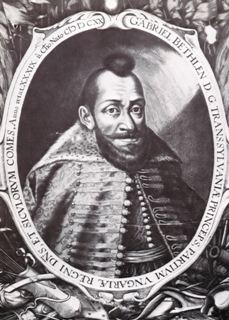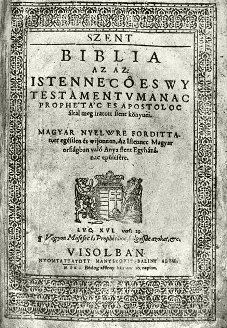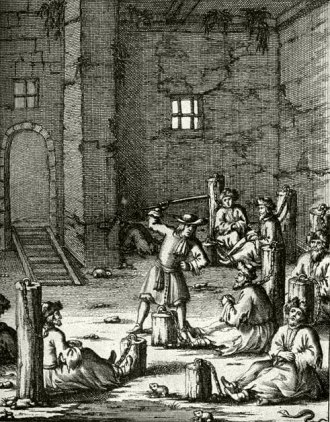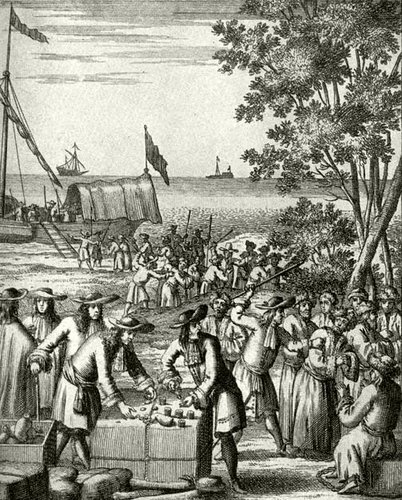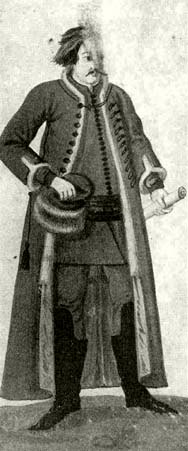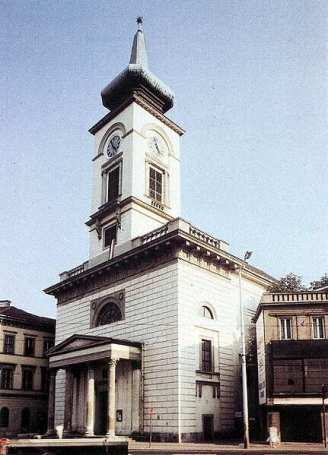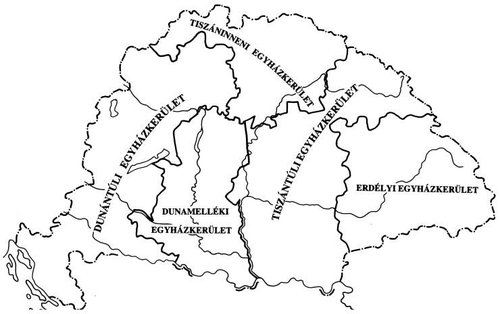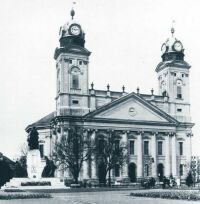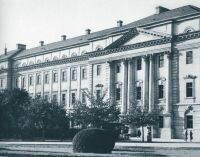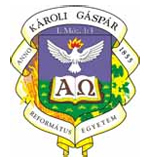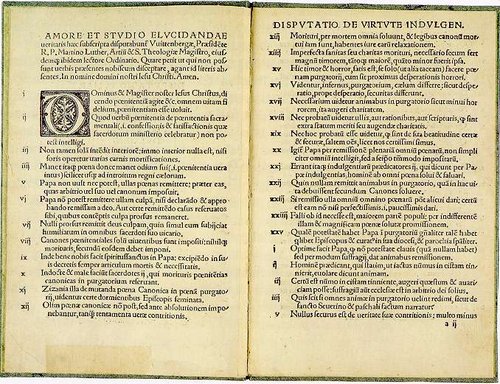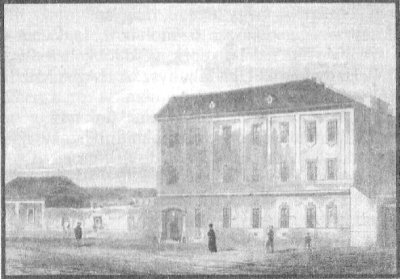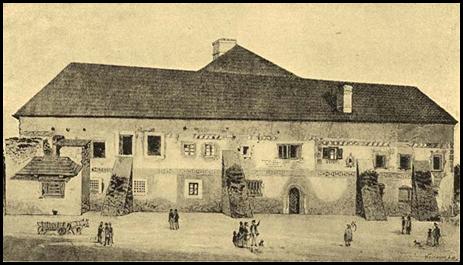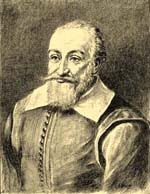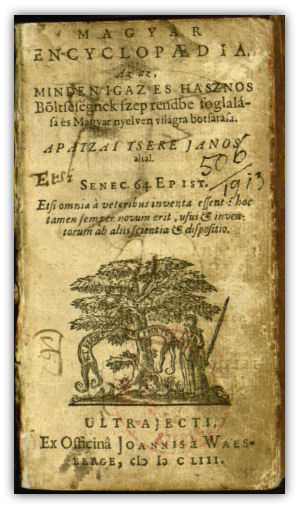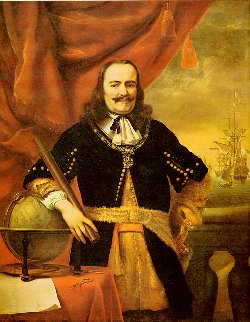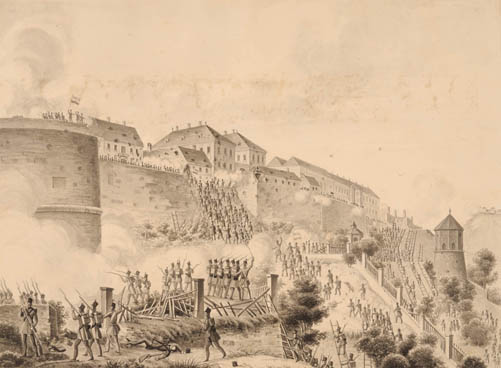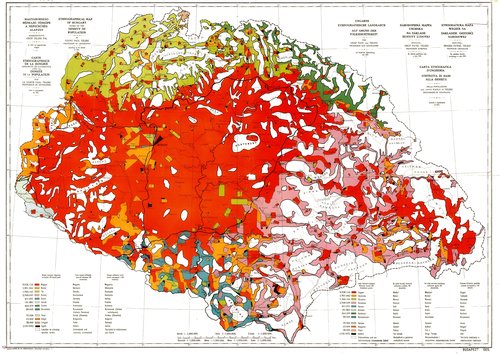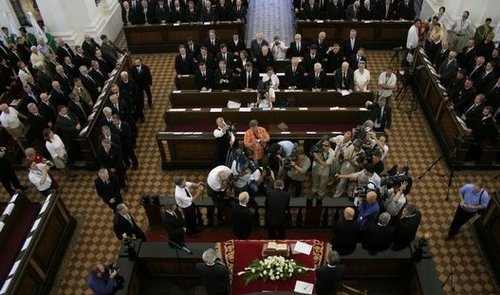History of the RCH
The Hungarian Reformed Church, since its establishment up to its present day, has undergone dramatic and turbulent times, but it has always been a source of inspiration for Hungary.
The founders of the Hungarian Reformed Church bravely faced opposition and tribulation for their revolutionary ideas. Its heroes, some of them persecuted as galley slaves, were a great example of faith in times of trial. The literature, music and visual arts inspired by the Reformed faith represent a special feature in Hungarian art history. Throughout the centuries, Reformed ministers, politicians, artists and students have shaped Hungarian thinking and philosophy, contributing a truly unique colour to the diversity of Hungary.
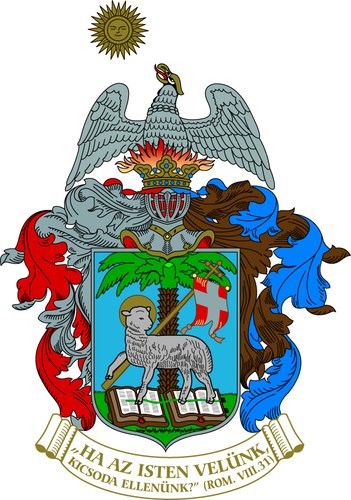
Crest - Coat of Arms of the RCH
The main figure of the crest is the Paschal Lamb, which represents Jesus Christ. The Lamb is holding a flag with his right leg, which symbolizes the Helvetic Confessions. The two books upon which the Lamb is standing represent the Old and New Testaments. The palm tree in the center symbolizes the motif of the Tree of Life, and it also represents the solidity and the capacity of resistance, and the history: the Church stood in destructible wars as an oasis in the desert. The phoenix represents the allegory of the fate full of hardships reborn from its ashes. The Sun is the symbol of immortality and power. In addition, the biblical words of the Reformation are included:“If God is for us, who can be against us?” (Romans 8:31)
Contact us
Click here if you are interested in twinning.
Reformed Church in Hungary
Address: H-1146 Budapest, Abonyi utca 21.
PO Box: 1140 Budapest 70, Pf. 5
Email: oikumene@reformatus.hu
English, German and Korean language services in Budapest
Links
Recommended articles
-
Diaconia Videos
Bridge of Love - Volunteering Days
-
Newsletter of the RCH - 12. September 2019
-
The "But" of the Resurrection
During the visit of the RCH delegation, on the 31st March, Presiding Bishop István Szabó gave a sermon in the Armenian Evangelical Bethel Church in Aleppo.
-
Memorandum of Commitment
On the 27th March Presiding Bishop István Szabó and leaders of the National Evangelical Synod of Syria and Lebanon as well as the Union of Armenian Evangelical Churches in the Near East has singed a Memorandum of Commitment expressing their dedication to the partnership with each other.
-
Newsletter of the RCH - 17 December 2018

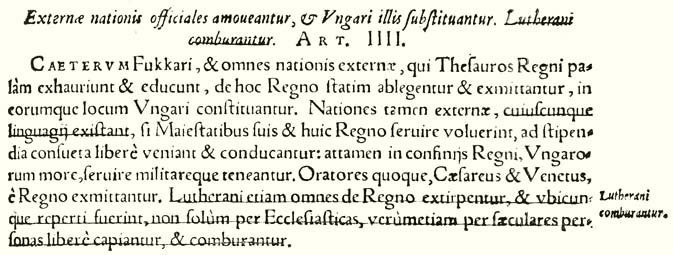 Edict of the Rákos National Assembly
Edict of the Rákos National Assembly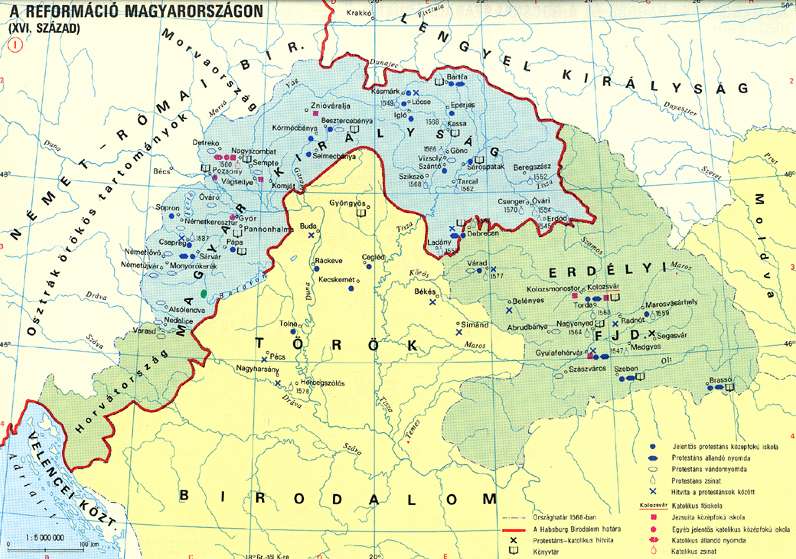
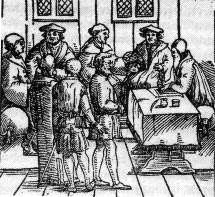

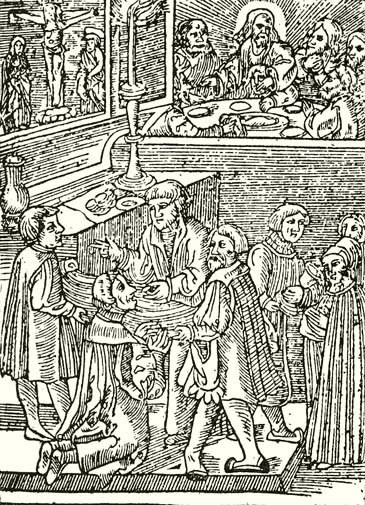
 Transylvanian Diet of Torda, painting of Aladár Körösfői-Kriesch
Transylvanian Diet of Torda, painting of Aladár Körösfői-Kriesch 